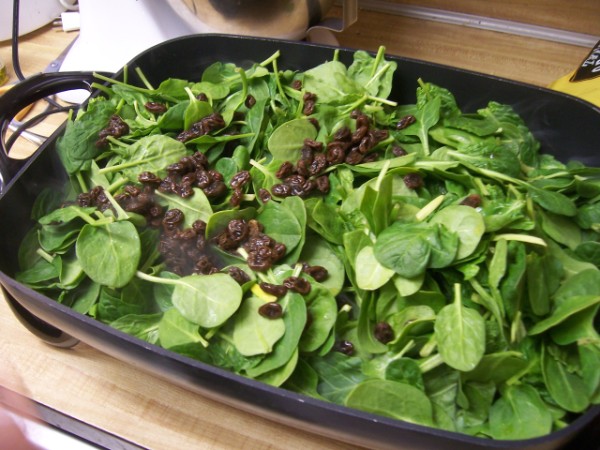Wednesday, July 21, 2010
Can Obesity Steal Your Smarts?
Older women hoping to keep their minds young should keep an eye on the scale—researchers have found a link between slowing down mentally and piling on the pounds.
For every extra point gained on a scale of obesity, scores in reasoning, memory and other mental skills fell, Dr. Diana Kerwin of Northwestern University in Chicago and colleagues found.
"What we found is that actually obesity in and of itself is an independent risk factor for declining cognitive performance," Kerwin said in a telephone interview.
She used data from the Women's Health Initiative, an ongoing national study of illness and death among older American women. She compared women's body mass index, or BMI, a measure of obesity commonly used by doctors and researchers, to their results on a test that measured their mental sharpness.
The test evaluated the memory, abstract reasoning, writing, and temporal and spatial orientation skills of the group of women ages 65 to 79. Among the 8,745 post-menopausal women who completed the test, for each point increase in the BMI scale, scores on the mental test went down by one point, Kerwin's team reported in the Journal of the American Geriatric Society. Read more here.
For every extra point gained on a scale of obesity, scores in reasoning, memory and other mental skills fell, Dr. Diana Kerwin of Northwestern University in Chicago and colleagues found.
"What we found is that actually obesity in and of itself is an independent risk factor for declining cognitive performance," Kerwin said in a telephone interview.
She used data from the Women's Health Initiative, an ongoing national study of illness and death among older American women. She compared women's body mass index, or BMI, a measure of obesity commonly used by doctors and researchers, to their results on a test that measured their mental sharpness.
The test evaluated the memory, abstract reasoning, writing, and temporal and spatial orientation skills of the group of women ages 65 to 79. Among the 8,745 post-menopausal women who completed the test, for each point increase in the BMI scale, scores on the mental test went down by one point, Kerwin's team reported in the Journal of the American Geriatric Society. Read more here.
Tuesday, July 13, 2010
Baba Ghanoush
This is my favorite recipe in the whole world – at least for today – although I think it may be the best food God created! I just absolutely cannot get enough of it. I love to eat this on toasted pita chips, on pretzels, French bread and right off the spoon. If I could plant my whole garden with eggplant I would – just so I could eat this every day. And it's really low fat!
Ingredients:
- 2 whole eggplants
- 3 T Tahini
- 3 garlic cloves, minced
- juice from 1 lemon
- salt to taste
Friday, July 09, 2010
Strawberry Banana Smoothie
This is one of our favorite afternoon snacks as well as a quick, easy breakfast food
Ingredients:
- 1-2 ripe bananas
- 1 C fresh or frozen strawberries
- 1 C Soy milk or almond milk or fruit juice
- 1 T ground flax seeds or chia seeds
- 1 T honey or sugar, if needed
- spinach, as desired
- 1 C ice (approx)
Preparation:
Combine all ingredients in Vita-Mix or high speed blender.
Play with the combinations to find out what works best for you. Add more or less ice, depending on the consistency that you prefer. Try to stay away from the extra sugar, if you can. The flax and chia seeds provide some essential fatty acids, and the spinach kicks the nutrient value up a notch, without adding much flavor. However, be forewarned, it will turn the smoothie from pink to brownish. A small price to pay!
For more recipes, click here.
Thursday, July 08, 2010
‘Eat your vegetables’: For kids, it means fries
Kids aren’t eating enough fruits and vegetables, and when they do consume produce, they are more likely to eat french fries than nutrient-rich dark green or orange vegetables, a study shows.That won’t surprise parents who have been trying to tempt their kids with better diets for years.
Researchers at Ohio State University analyzed government data on 6,500 children and teens, ages 2-18, and found that the children were consuming an average of 2 cups of fruits, vegetables and juice a day. Teens ate only slightly more than that.
The government nutritional guidelines base recommended produce intake on total calories consumed. The range is 2 to 6½ cups of fruits and vegetables each day, based on an intake of 1,000 to 3,200 calories a day. Someone consuming 2,000 calories a day should eat 2 cups of fruit and 2½ cups of vegetables a day. Read the rest of the story here.
Researchers at Ohio State University analyzed government data on 6,500 children and teens, ages 2-18, and found that the children were consuming an average of 2 cups of fruits, vegetables and juice a day. Teens ate only slightly more than that.
The government nutritional guidelines base recommended produce intake on total calories consumed. The range is 2 to 6½ cups of fruits and vegetables each day, based on an intake of 1,000 to 3,200 calories a day. Someone consuming 2,000 calories a day should eat 2 cups of fruit and 2½ cups of vegetables a day. Read the rest of the story here.
Subscribe to:
Comments (Atom)







